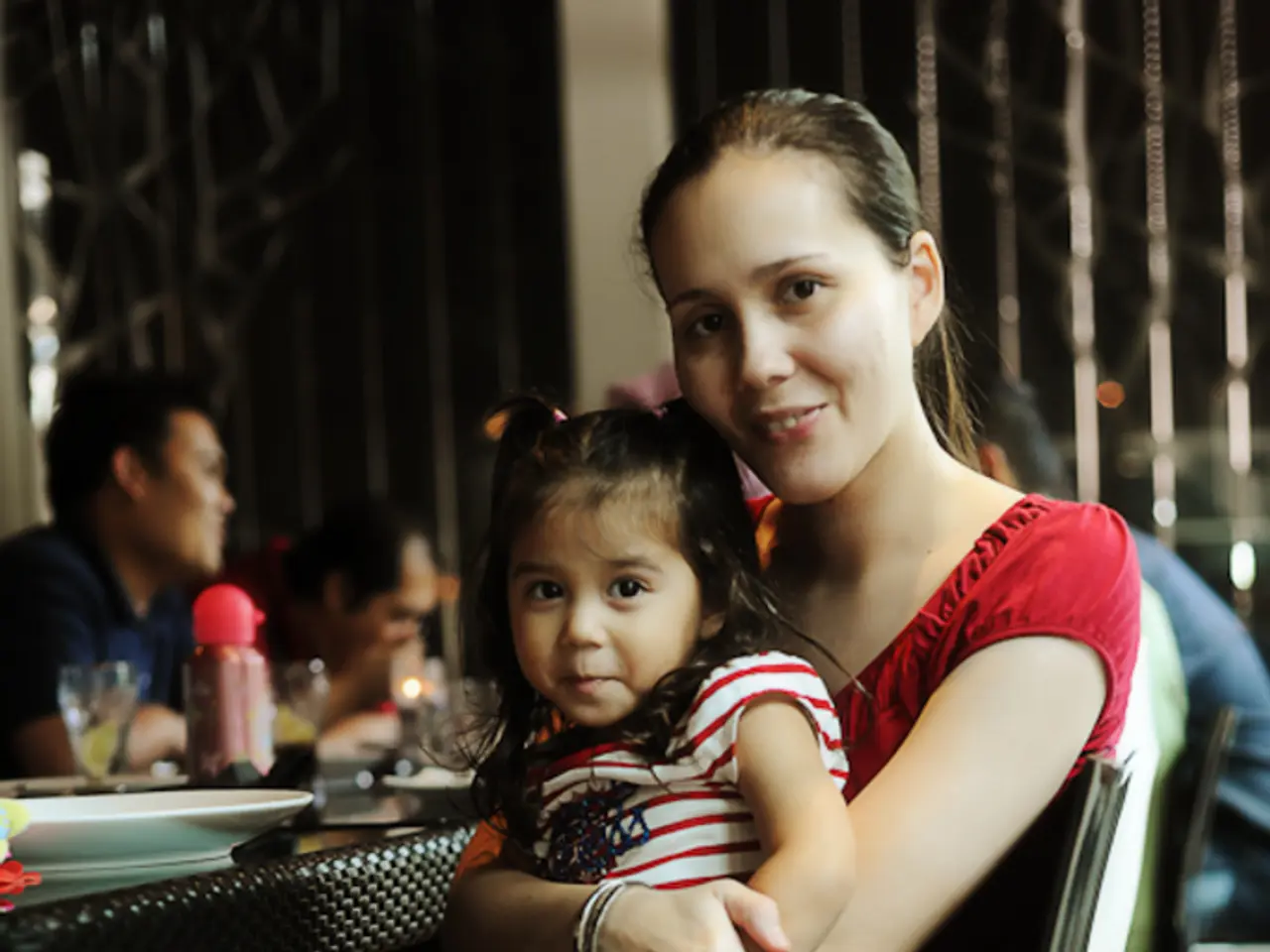Linking Endometriosis and Back Pain: What Role Do They Play Together?
Endometriosis, a condition that affects people assigned female at birth, can cause chronic lower back pain if the tissue grows on or near the back. However, it's important to note that back pain alone may not be a definitive indicator of endometriosis. If it occurs alongside other symptoms such as infertility, bleeding or spotting between menstrual cycles, stomach or digestive issues, or pain during or after sex, it may suggest endometriosis as the underlying issue.
For mild to moderate endometriosis back pain, over-the-counter pain relievers like NSAIDs or acetaminophen can provide relief. However, for severe pain, a doctor may prescribe prescription strength pain relievers or recommend surgery to remove the endometriosis tissue or confirm the diagnosis.
Beyond over-the-counter pain relievers and surgery, additional treatment options for managing severe endometriosis-related back pain include hormonal therapies, physical therapy (including pelvic floor therapy), nerve stimulation techniques like TENS, acupuncture, and complementary approaches such as anti-inflammatory diets, yoga, and psychological support.
Hormonal therapies, such as birth control pills, progesterone-only medications, and other hormone modulators, can reduce endometriosis-related pain by suppressing lesion growth and inflammation. Physical therapy, particularly specialized pelvic floor physical therapy, can strengthen muscles, reduce pelvic and back pain, and address secondary dysfunctions. Transcutaneous Electrical Nerve Stimulation (TENS) is a home-based electrical stimulation device that may help relieve pain. Acupuncture, administered by trained professionals experienced in endometriosis, has shown pain relief benefits for some patients.
Complementary therapies, such as anti-inflammatory diets, yoga, mindfulness, and herbal supplements, may reduce inflammation and pain perception, and help improve quality of life. Psychological and emotional support, including counseling, support groups, and mindfulness techniques, are important adjuncts to comprehensive care, especially after surgery.
Advanced pain management may involve image-guided nerve blocks, hormone-modulating therapies tailored to individuals, and coordinated multidisciplinary care involving gynecologists, pain medicine experts, physical therapists, and mental health professionals.
It's crucial to consult healthcare providers to tailor a multidisciplinary treatment plan best suited to an individual's symptoms, severity, and reproductive goals. If lower back pain persists despite over-the-counter treatments, it's essential to seek medical advice. Some people find relief with other therapies, such as chiropractic care or acupuncture.
There is no cure for endometriosis, but for people not attempting to become pregnant, using an extended-cycle or intrauterine device (IUD) can help reduce nonsevere symptoms. Endometriosis back pain may be chronic and last for a while. In some cases, severe lower back pain due to endometriosis may radiate into the pelvic region.
[1] Endometriosis Foundation of America. (2021). Treatment Overview. Retrieved from https://www.endofound.org/endometriosis-101/treatment-overview/
[2] Mayo Clinic. (2021). Endometriosis - Diagnosis and treatment. Retrieved from https://www.mayoclinic.org/diseases-conditions/endometriosis/diagnosis-treatment/drc-20353863
[3] National Institutes of Health. (2021). Endometriosis: Hope Through Research. Retrieved from https://www.endometriosis.nih.gov/
[4] American College of Obstetricians and Gynecologists. (2021). Endometriosis. Retrieved from https://www.acog.org/womens-health/faqs/endometriosis
[5] International Pelvic Pain Society. (2021). Multidisciplinary Approach to Chronic Pelvic Pain. Retrieved from https://www.pelvicpain.org/patients/patient-information/multidisciplinary-approach-to-chronic-pelvic-pain/
- For women experiencing chronic lower back pain potentially associated with women's health issue endometriosis, a variety of treatment options beyond over-the-counter pain relievers are available, such as hormonal therapies, physical therapy, TENS, acupuncture, and complementary approaches like anti-inflammatory diets, yoga, and psychological support.
- In cases of severe endometriosis-related back pain, advanced pain management strategies may be necessary, including image-guided nerve blocks, tailored hormone-modulating therapies, and collaborative multidisciplinary care that involves gynecologists, pain medicine specialists, physical therapists, and mental health professionals.




